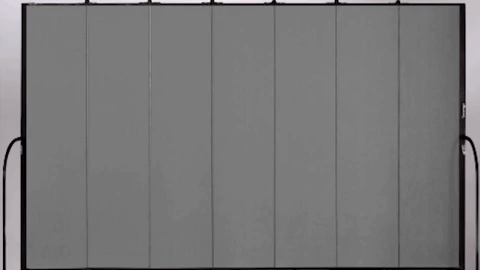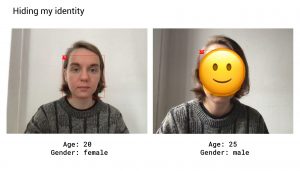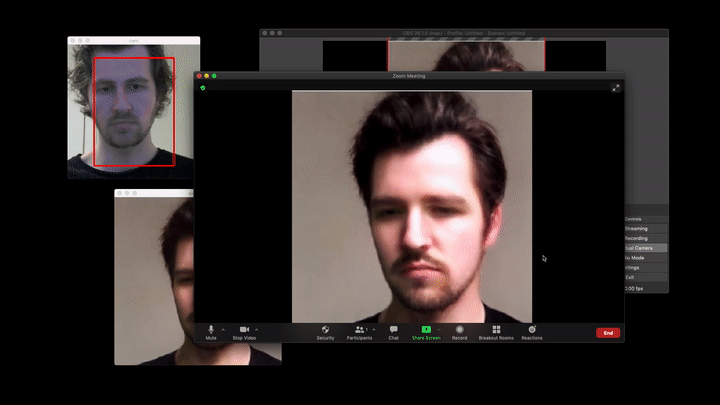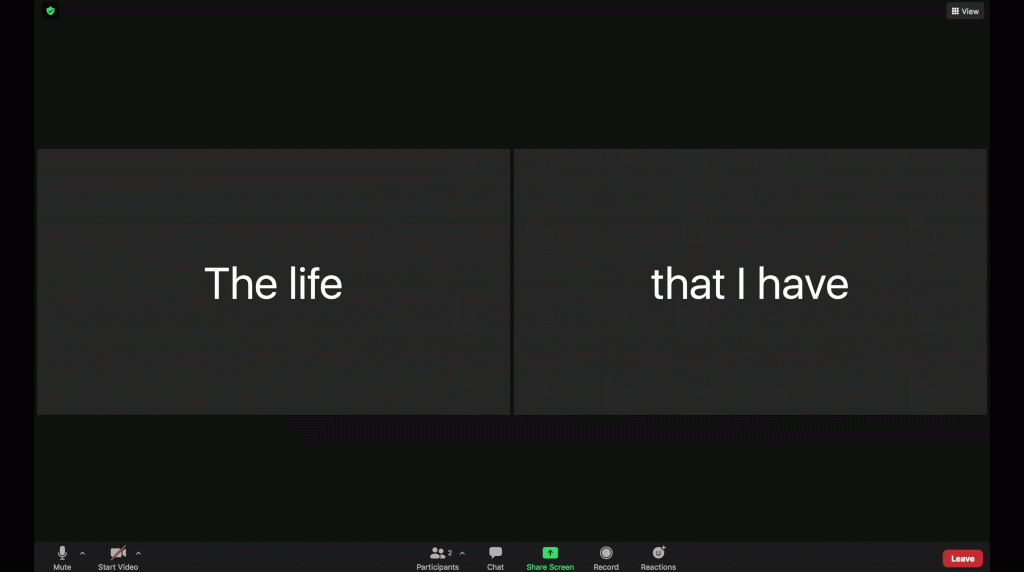CREATIVE INTERVENTIONS IN THE CULTURES OF VIDEO CALLING
Zoom Obscura brought together artists, academics, hackers, designers and creative technologists to develop critical interventions that make the problematic workings of technologies such as Zoom legible to wider audiences while empowering users to experiment with, and control how their personal data (visual, audible, text input) manifest in online spaces.
Exhibition details
Wednesday, 19th May to Thursday, 17th June 2021
open to view at Inspace City Screen at street level on Potterrow from 8pm to 1am
1 Crichton Street, Edinburgh, EH8 9AB
Search for #ZoomObscura on Twitter, Instagram and Facebook to see more.
THE PROJECT
Do you ever feel exposed or uncomfortable in video calls?
Do you wish you had more control over how you are seen and heard in these spaces?
Whether it’s privacy concerns, ‘zoom fatigue’, or personal/professional pressures, the pandemic has forced us into new ways of existing that demand transparency, critique, and even a bit of subversion…
Playing on metaphorical (Kofman 1999) and material concepts of the Camera Obscura, with its inverted images and use of light and shadow, Zoom Obscura addresses these issues by harnessing the critical power of art, design and technology; blending and bringing into tension skills and genres to produce a range of interventions which give users the power to take back some of the agential power from platforms such as Zoom.
These four artists responded to the call for expressions of interest in September 2020 and developed the following creative interventions:
THE ARTISTS & INTERVENTIONS
ZOOM_mod-Pack

B Wijshijer
ZOOM_mod-Pack is a collection of webcam modifiers that video chat guests can run through a virtual camera, like OBS, to customize their video chat experience. This collection of filters highlights the theatricality of the video chat platform while simultaneously offering different ways to regain agency within it.
B Wijshijer is an artist and researcher based in Tkaronto (Toronto), Canada, working within digital media, video and performance. Informed by acceleration aesthetics, their work plays with excess and artifice to interrogate the ways in which late capitalism affects our digital lives.
Masquerade call

Ilse Pouwels
Masquerade call aims to intervene in the unbalanced power relation between us, “users”, and our digital video conference softwares, in specific Zoom. Going back to the question, ‘why did we start using these tools in the first place?’… To communicate with each other while being apart. How can this need be fulfilled in a playful way while respecting users privacy?
Ilse Pouwels is a Dutch concept designer, creative technologist and artist. As part of a gap year from a Masters degree in interaction design at the Umea Institute of Design in Sweden, Ilse is currently an intern at design studio Tellart, and is interested in ‘polluting’ data in online exchanges.
How They Met Themselves

Martin Disley
How They Met Themselves is an investigation into how algorithmic and human schemas of facial identification, verification and perception differ and how these differences can be leveraged to control how our identity is coded in the images we put online. In aid of this, a bespoke software tool called Deepfake Doppelgänger was developed to exploit some of these differences.
Martin Disley is an Edinburgh-based artist and creative technologist currently exploring the creative and critical potential of Generative Adversarial Networks (GAN) on datasets. For Zoom Obscura, he is interested in subverting facial recognition software through adversarial attacks.
For Ruth & Violette

Paul O’Neill
For Ruth & Violette plays with poetry and encryption to subvert networked communications infrastructures. Based on a code-poem used by intelligence operatives in the Second World War, the piece harnesses alternative uses of the video conferencing platform Zoom to engage with the complex history of obfuscation in relation to covert broadcasting methods.
Paul O’Neill is a Dublin-based artist and researcher. Extending his own work on the narrative potential of data infrastructure, his work on Zoom Obscura develops possibilities of subversion and covert paratextual communication through the manipulation of the labelling functions on Zoom boxes.
OTHER RESOURCES
The Zoom Obscura project researchers and artists participated in a number of other events and showcases. You can view and read more about their activity and developments here:
- Zoom Obscura website
- Search for #ZoomObscura on Twitter, Instagram and Facebook
- Zoom Obscura: creative interventions for a data ethics of video conferencing beyond encryption, a talk by Pip Thornton for the Controversies in the Data Society Seminar Series 2018-2021
- Zoom Obscura: creative interventions for a data ethics of video conferencing beyond encryption, a talk by Pip Thornton and Chris Elsden for the Design Informatics Research Webinar
- Zoom Obscura Showcase – Works in Progress at the Tinderbox Collective’s PlayAway Festival
CREDITS & THANKS
Zoom Obscura is led by researchers from The University of Edinburgh (Pip Thornton, Chris Elsden and Chris Speed), Durham University (Andrew Dwyer), and Kings College London (Mike Duggan), and is in collaboration with Edinburgh-based art and music collective Tinderbox Collective, curator Hannah Redler-Hawes, and design/technology consultant David Chatting.
Funded through the EPSRC Human Data Interaction (HDI) Network in the Data and Ethics competition, an open call for artists/creative technologists/hackers was launched in September 2020, and artists were selected and commissioned to create original interventions answering the questions raised by the Zoom Obscura project.